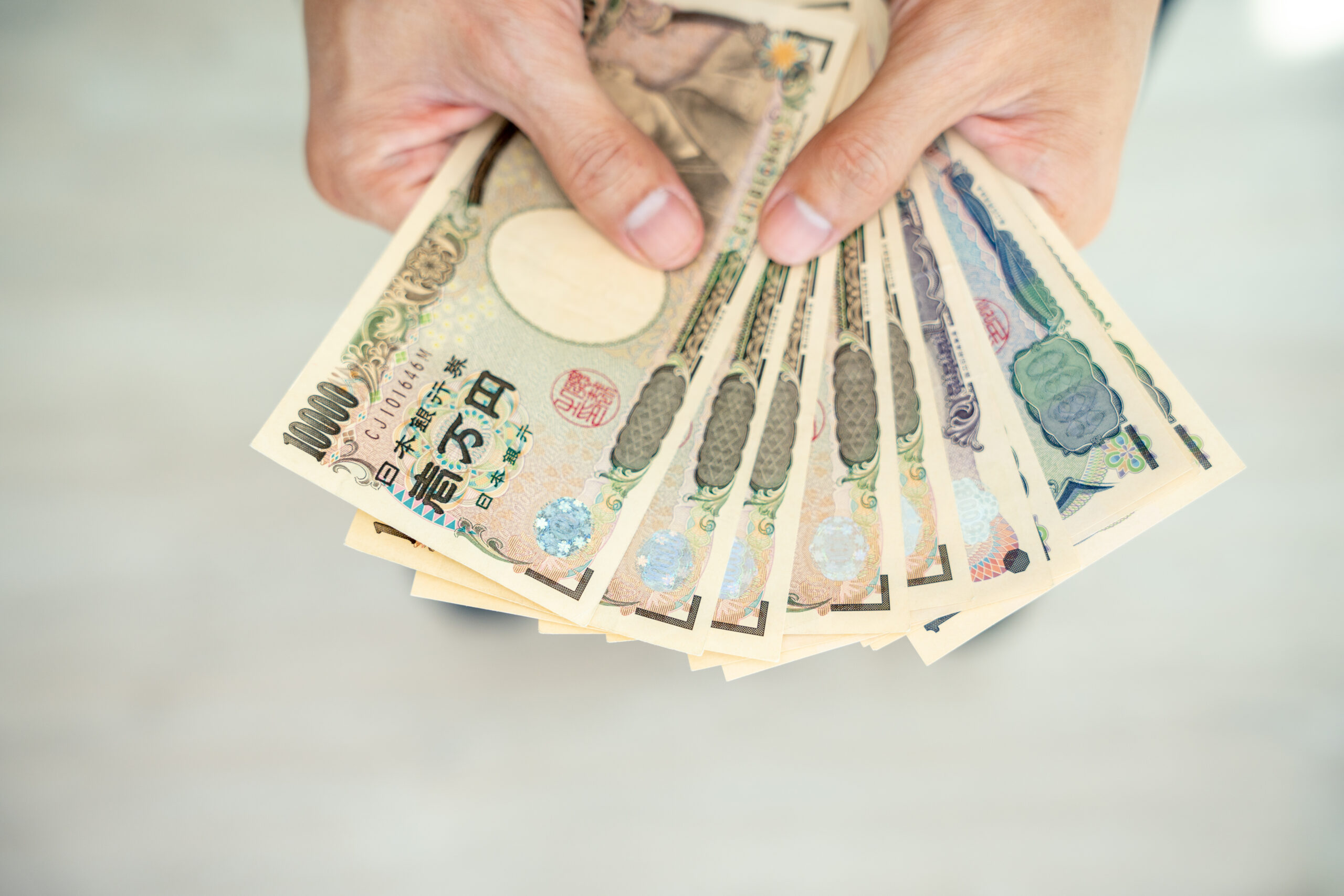In a world rapidly advancing towards digital financial transactions, Japan presents an intriguing counter-narrative with its persistent reliance on cash. Despite being a global technology leader, the country’s affection for physical currency remains strong, even in an era where digital payments are becoming the norm. This article delves into the reasons behind Japan’s cash culture, exploring the complexities and paradoxes of a society that embodies the cutting edge of technology yet clings to traditional payment methods. From safety concerns and privacy to the robust ATM network and the challenges faced by digital payment providers, we unravel the layers of Japan’s enduring cash loyalty and speculate on its future in the digital age.
Japan’s Reliance on Cash in a Digital Age
In Japan, cash is not just a means of transaction; it’s a cultural institution. Despite the global shift towards digital payments, Japan’s economy remains heavily cash-based. Visitors and residents alike are often surprised by the necessity of carrying cash in a country known for its technological prowess. From small retailers and restaurants to even some of the larger establishments, cash is often the preferred, if not the only, method of payment. This reliance on physical currency is juxtaposed against a backdrop of a highly digitalized society, creating a unique financial landscape that continues to intrigue and perplex observers.
Unpacking the Enigma of Japan’s Cash Loyalty
Unraveling the enigma of Japan’s loyalty to cash requires a deep dive into the country’s socio-economic fabric. High levels of trust in the physical currency, combined with a deeply ingrained habit and historical precedent, play significant roles. Moreover, the Japanese banking system and its structure have traditionally encouraged savings in cash form. The physicality of money is also tied to concepts of value and security, which are deeply rooted in the Japanese psyche. This complex interplay of factors contributes to the enduring preference for cash transactions despite the availability and convenience of digital alternatives.
The Digital Shift: Why Japan Still Prefers Cash
The digital shift that has swept across the globe seems to have bypassed Japan’s payment landscape to a certain extent. Several factors contribute to this phenomenon. First, the existing infrastructure for cash transactions is highly developed and efficient, making the transition to digital payments less compelling. Second, concerns over cyber security and personal privacy lead many Japanese to prefer cash, which leaves no digital footprint. Additionally, the older generation, which holds significant economic power, shows a strong preference for cash, influencing the market’s overall orientation towards physical currency.
Exploring the Roots of Japan’s Cash Culture
The roots of Japan’s cash culture are deep and multifaceted. Historically, Japan has been a cash-preferred society, with practices dating back centuries that underscore the value of physical money. The post-war economic boom saw a surge in the country’s savings rate, with much of those savings held in cash. Moreover, the Japanese education system emphasizes financial responsibility and saving from a young age, often in tangible forms. This historical context, combined with a relatively late adoption of credit card systems and the enduring strength of the banking sector focused on cash transactions, has cemented the role of cash in Japanese society.
Cash vs. Cards: Japan’s Payment Landscape
Navigating Japan’s payment landscape reveals a complex picture where cash and cards coexist, but not necessarily in harmony. Credit card penetration in Japan is significant but lags behind other developed economies in terms of usage for daily transactions. Small businesses, which form a large part of the economy, often prefer cash to avoid transaction fees associated with card payments. Meanwhile, the adoption of credit cards and digital payment methods is increasing among younger generations, indicating a slow but perceptible shift. However, cash remains king, with a vast network of ATMs conveniently placed throughout the country, ensuring cash is never far out of reach.
The Paradox of High-Tech Japan’s Cash Habit
The persistence of cash in high-tech Japan presents a fascinating paradox. On one hand, Japan is at the forefront of technology, leading in robotics, electronics, and automotive industries. On the other, its financial transactions are tethered to an age-old preference for cash. This paradox is partly explained by Japan’s approach to technology, which emphasizes enhancement rather than replacement of existing systems. Thus, while digital payment systems are available and growing, they supplement rather than supplant the entrenched cash infrastructure. This coexistence reflects a broader cultural tendency in Japan to blend the old with the new, creating a society that is at once futuristic and traditional.
Safety and Privacy: Reasons for Japan’s Cash Preference
Safety and privacy concerns are at the heart of Japan’s preference for cash. The country enjoys one of the lowest crime rates globally, making carrying and transacting in cash relatively risk-free. Additionally, cash transactions provide anonymity, a coveted feature for consumers in an era of increasing surveillance and data breaches. The Japanese value their privacy highly, and cash payments offer a layer of security that digital transactions cannot match. This cultural inclination towards safeguarding personal information reinforces the cash-centric culture, despite the convenience of digital payment options.
ATM Networks and Cash Accessibility in Japan
Japan’s extensive ATM network plays a crucial role in sustaining the cash-dominant economy. With over 200,000 ATMs nationwide, access to cash is remarkably convenient, ensuring that cash remains an easy and preferred choice for many. These ATMs are not only located in banks but also in convenience stores, shopping malls, and even remote areas, operating 24/7. The widespread availability of ATMs, coupled with services offered in multiple languages, underscores the infrastructure’s role in facilitating Japan’s cash preference.
Challenges for Digital Payment Providers in Japan
For digital payment providers, Japan presents a unique set of challenges. Convincing a population accustomed to the tangible benefits of cash to switch to digital platforms requires overcoming deeply ingrained habits and perceptions. The high costs associated with updating merchant payment systems and the reluctance of small business owners to incur these expenses further hinder the adoption of digital payments. Moreover, digital payment platforms must navigate a highly competitive market, where consumer loyalty to established practices is strong, and the perceived advantages of digital payments are not as compelling as in other markets.
The Future of Cash and Digital Payments in Japan
The future of cash and digital payments in Japan is likely to be characterized by coexistence rather than a complete transition to one form of payment. Government initiatives and societal trends toward digitalization are gradually increasing the adoption of digital payment methods. However, the deep-rooted trust in cash, combined with the infrastructure supporting its use, suggests that cash will remain a significant part of Japan’s payment landscape for the foreseeable future. Innovations in digital payment technologies, including those that enhance privacy and security, may accelerate the shift, but the transition is expected to be gradual.
Government Initiatives to Promote Digital Transactions
The Japanese government has launched several initiatives to encourage digital transactions, aiming to double the ratio of cashless payments by the mid-2020s. These include subsidizing the costs for small and medium-sized enterprises to adopt cashless payment systems and offering tax incentives to consumers who use digital payments. The government’s efforts reflect an acknowledgment of the benefits of digital transactions, including efficiency and traceability, and represent an attempt to modernize Japan’s financial landscape while respecting its cash culture.
Cultural Shifts: Will Japan Embrace a Cashless Future?
As Japan stands at the crossroads of tradition and innovation, the question of whether it will embrace a completely cashless future remains open. Cultural shifts, driven by younger generations more open to digital payments and influenced by global trends towards cashlessness, are slowly reshaping Japan’s payment landscape. However, any transition towards a cashless society will have to carefully balance the benefits of digital payments with the deeply rooted cultural affinity for cash. As such, Japan’s journey towards cashlessness, if it occurs, will likely be a gradual evolution rather than a sudden revolution, reflecting the country’s unique blend of tradition and modernity.
Japan’s persistent cash culture in a digital world exemplifies the complex interplay between tradition and innovation that characterizes much of Japanese society. While the global trend moves decisively towards digital payments, Japan’s journey reflects a cautious, nuanced approach to financial modernization. Balancing the convenience and efficiency of digital transactions with the cultural, safety, and privacy concerns associated with cash, Japan’s payment landscape is set to evolve, albeit at its own pace. As the country continues to navigate its path between maintaining traditional values and embracing technological advancements, the future of Japan’s payment systems remains a fascinating subject to watch.








